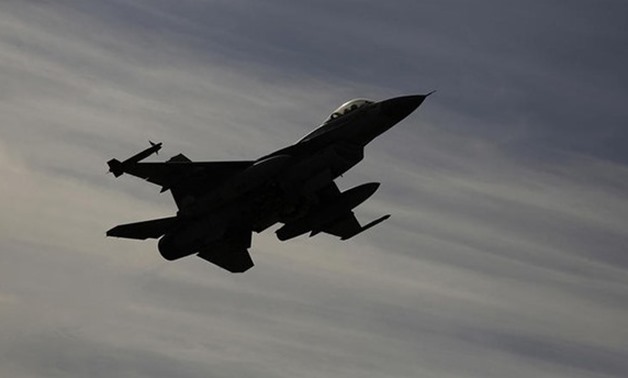
An Israeli F-16 fighter jet flies during a drill in Israel. (Reuters
BEIRUT/JERUSALEM - 12 July 2018: Israel attacked Syrian army positions on Thursday near the Golan Heights frontier, where pro-government forces fighting insurgents in the south of the country have marched towards the border.
But Prime Minister Benjamin Netanyahu, briefing Israeli reporters during a visit to Moscow, signalled that Israel would not act against President Bashar al-Assad in his efforts to regain control in Syria, while working to ensure Iranian forces who support him quit the country.
"We never had a problem with the Assad regime. For forty years (after the 1973 Middle East war), not one bullet was fired on the Golan Heights," a reporter for Israel's Haaretz newspaper quoted Netanyahu as saying.
"The heart of the matter is retaining our freedom of action against anyone who acts against us, and the removal of the Iranians from Syrian territory," Netanyahu said, a day after meeting Russian President Vladimir Putin.
The Israeli military said it had hit three targets in retaliation for the incursion of a Syrian drone which it shot down over its air space hours earlier.
"The IDF (Israeli Defence Forces) holds the Syrian regime accountable for the actions carried out in its territory and warns it from further action against Israeli forces," it said in a statement.
Israel issued black-and-white surveillance footage that showed missiles hitting what appeared to be a hut, a two-storey structure and a five-storey structure in hilly terrain.
Syrian state media said the missiles targeted positions around Hader village in the southern province of Quneitra, near the Israeli-occupied Golan Heights.
"The aircraft of the Israeli enemy fired several missiles in the direction of some army positions," state media cited a military source as saying. Air defences thwarted the attack, which caused only material damages, it said.
Israel is alarmed by Iranian influence in Syria during the seven-year civil war, striking targets it describes as Iranian deployments or convoys of Hezbollah, a Lebanese movement backed by Tehran.
Israel has been on high alert as Syrian government forces advance on rebels near the Golan, which Israel took from Syria in the earlier 1967 Middle East war. Israel worries Assad could let his Iranian allies entrench there or that Syrian forces may defy a 1974 Golan demilitarisation.
With the help of heavy Russian air power, Syrian government forces seized swathes of the southern Deraa province from insurgents in the past three weeks. The offensive is expected to turn next to rebel parts of Quneitra, closer to the Golan.
The pro-Damascus newspaper al-Watan said on Thursday the army sent reinforcements to launch a "broad military operation" and bring all the province under state rule.
The Syrian Observatory for Human Rights said rebel factions clashed with government forces overnight in Quneitra.
Earlier this week, state media said air defences struck an Israeli warplane and shot down missiles targeting the T4 air base in Homs province. Israel neither confirmed nor denied carrying out that strike.
Comments
Leave a Comment